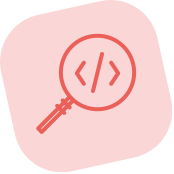Development Tools – How We Get the Job Done
Whenever we are at a gathering of nerd, invariably the conversation will turn to what development tools we use. We’ll exchange ideas, tips, new applications we’ve tested and so on. Ultimately we are always looking for things that will make us work faster and things that make working easier. So with that, here’s what we are using currently. (And I say currently because we are always trying out new things and adapting the gems into our workflow.)
List of Development Tools
*Paid, Subscription, or Freemium Applications.
**Some command line or a super smart friend required.
NOTE: When considering buying software, always weigh the price to the cost savings.
- Sublime Text* – This is our text editor of choice. It is a simple, streamlined text editor, and not bloated with features. It has a great development community (just like WordPress) who create great add-ons to help customize it to one’s specific needs. For example, we added a package to it that autofills WordPress functions.
- DesktopServer* – We use Desktop to manage our local working environments. It is fast to start up a new WordPress install, and very easy to pass working environments from one developer to another.
- Alfred* – Alfred helps us keep our hands on the keyboard. On average a person who works at the computer will lose about 8 days a year just for the time it takes to move a hand from the keyboard to the mouse and back again. So getting that time back means trying to keep hands on the keyboard at all times. Alfred allows for quick access to any application, search documents, etc. If you purchase the PowerPack you can also create workflows to automate repetitive tasks. There are many user contributed Alfred workflows available for free on Packal to get you started.
- Dash* – Dash brings coding documentation offline. We all rely heavily on documentation all the time for WordPress, jQuery, Sass, PHP, MySQL, etc. All that is now available for us offline so I can keep working while when we don’t have a WiFi connection. (It also integrates with Alfred for quicker searching.) As an added bonus, Dash also allows for customizable text expansion integration into most text editors and text fields.
- Coding – Code is a the root of what we do. There are a lot of tools we use within this topic for tracking, testing, prototyping, and streamlining repetitive tasks.
- Git** – Version control is a must when developing, especially when developing within a team. Though this is often managed via the command line, there are GUI applications that are available and useful. A few of us here at Pixel Jar use Tower*.
- Gist – GitHub’s code snippet repository allows us to easily share and keep code chunks available when necessary.
- CodePen – A more complex code repository allowing for HTML, scripting, and styling. Excellent for prototyping or maintaining the core of complex functionality. This is great for testing out a new javascript idea, or a new CSS styling structure in an independent and abstract environment.
- Yeoman** – Scaffolding to get your to your starting point quicker. Admittedly this is a bit more advanced to create, but you can stand on the shoulders of geniuses if you just want to use the generators. There are lots of generators that already exist for starting up a WordPress project, or a phone app, or an angular project.
- Bower** – Easily include 3rd party assets into your project without having to manage them in your repository.
- BrowserSync** – BrowserSync will inject new styles, php, and scripts into multiple browsers or multiple devices on document save. So when a change is saved to a style file, the desktop, tablet, and phone browsers all update automatically.
- Gulp** – This is our preferred task manager. Task managers run all kinds of processes for us such as compiling Sass into CSS, minimizing javascript files, and incorporating recently changed files into the browser for our local development.
- Emmet – Emmet is a plugin available for most text editors (including Sublime Text) that provides a shorthand for developing markup. It is also customizable, so you can really bend it to your specific needs.
Sometimes this seems like a lot of stuff. But they are all things that have been incorporated over time so they’ve been integrated slowly. All that’s important is that you find what works for you. If you ever see us at a Meetup or a WordCamp, please tell us what you are using. We love to talk shop and are always looking for something better!






